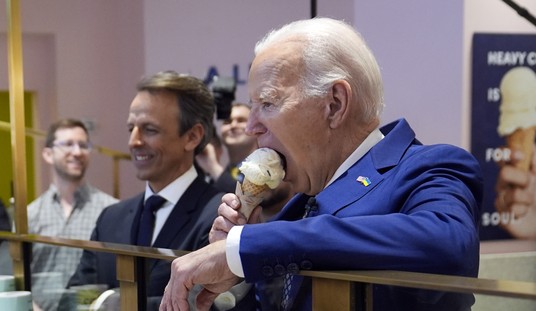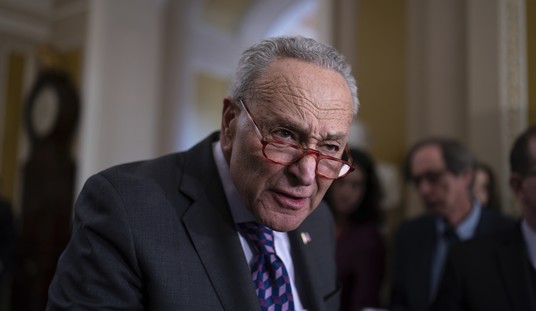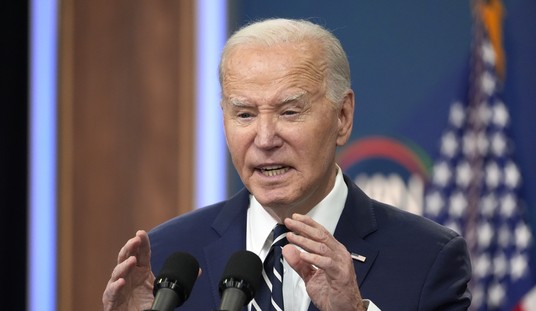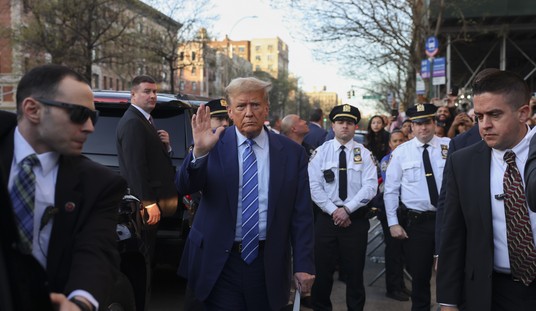
screengrab from https://youtu.be/809yRtq1cp8
I don’t have very much faith in the ability of the Washington Post to actually cover political news. During the Kavanaugh nomination, in particular, the Washington Post was Patient Zero in the spread of #FakeNews about Kavanaugh.
I won’t reward hackery by linking to it, but @pbump ‘s article in WaPo is a disgrace. He uses distortions, outright lies, and spin to accuse Kavanaugh of having lied about things. Many of the things he labels as false are simply opinions.
Pure smear artists.
— (((AG))) (@AGHamilton29) September 29, 2018
I have some time while watching Football so I will just go through these and show that it is actually @pbump that has repeatedly "stretched and misrepresented the truth" in this article. Calling into question whether he should be disqualified from being labeled a journalist. https://t.co/NX4h0aynTq
— (((AG))) (@AGHamilton29) September 29, 2018
On the left is Bump's article claiming to show a falsehood in BK's testimony. On the right are my comments. pic.twitter.com/xdAESGwIRn
— (((AG))) (@AGHamilton29) September 29, 2018
— (((AG))) (@AGHamilton29) September 29, 2018
— (((AG))) (@AGHamilton29) September 29, 2018
— (((AG))) (@AGHamilton29) September 29, 2018
— (((AG))) (@AGHamilton29) September 29, 2018
Bump goes on to argue over whether Kavanaugh gave the proper meaning of terms like boofed and devil's triangle based on speculation from random people on what they think those terms meant to BK 35+ years ago.
— (((AG))) (@AGHamilton29) September 29, 2018
I could go through the rest, but you get the point. Almost every one of Bump's examples of falsehoods relies on him making assumptions or falsely spinning things himself. This isn't journalism. It's a poorly disguised smear attempt without the facts to back it up.
— (((AG))) (@AGHamilton29) September 29, 2018
The Philip Bump he mentions is the same Philip Bump that ran a Pizzagate-style conspiracy story about how the July 1 party entry on Kavanaugh’s high school calendar was the day that Ford was assaulted, a bald-faced lie that was definitively refuted by none other than Christine Ford, herself.
But, once the smoke has cleared, the Post usually does a good job of establishing a credible chronology of events. They’ve done this with the Kavanaugh confirmation process.
Some high points.
There were two distinct phases to the nomination: before Ford and after Ford.
The story of Kavanaugh’s nomination can be told in two parts. Until Sept. 16, he was a milquetoast Bush Republican whose confirmation hearings had failed to animate much of the country. But that Sunday, when The Washington Post published Ford’s detailed account of sexual assault when she and Kavanaugh were teenagers in suburban Maryland, the Supreme Court nomination gripped the nation — casting Kavanaugh as a predator with a drinking problem for some and an unfairly smeared folk hero for others.
White House staff didn’t want Trump involved.
The President was immediately advised, including by Conway, not to attack Ford, but to say that she deserved to be heard — a line he stuck to for several days.
Kavanaugh stopped being Bush’s guy and started being Trump’s guy.
“Kavanaugh’s an establishment guy. He was a Bush guy,” said Sen. Lindsey O. Graham (R-S.C.), referencing the nominee’s experience as White House staff secretary under President George W. Bush. “There was a lot of pushback, you know — ‘Don’t go [down] that road,’ ‘That’s not why you won,’ and he said, ‘Wait a minute. I want to pick the best people to be on the court I can,’ and he said he was incredibly impressed by his background, just the whole package of Kavanaugh.”
McConnell made the right call in extending the FBI investigation.
But Flake was confronted that day in a Senate elevator by two women who tearfully accused him of dismissing credible allegations of assault. He told fellow senators the FBI should reopen its background investigation to review the sexual misconduct allegations.
Flake, along with Murkowski and Collins, met with McConnell and the committee’s Republican members in the leader’s Capitol office and said they would not vote to confirm Kavanaugh until there had been an FBI investigation. The trio laid out the scope of the probe, which would take no more than one week and which they decided would not include Swetnick’s claims.
“How do we confine it to credible allegations versus any number of things that we would’ve expected to come out?” recalled Senate Judiciary member Thom Tillis (R-N.C.).
McConnell spoke with Trump and convinced him that the only option was to delay a vote and move forward with the FBI probe, according to people familiar with their conversation.
Collins’ vote may never have been up for grabs.
McConnell understood that Murkowski, who generally keeps her own counsel, was the true wild card. After being personally lobbied by sexual assault survivors from Alaska, she announced Friday morning that she would not vote to confirm Kavanaugh.
The turning point.
Again and again, President Trump was instructed not to do it. A cadre of advisers, confidants and lawmakers all urged him — implored him, really — not to personally attack the women who had accused Supreme Court nominee Brett M. Kavanaugh of sexual assault.
So he did it anyway.
Addressing thousands at a boisterous rally in Mississippi, Trump relied on his own visceral sense of the moment and mocked Christine Blasey Ford for gaps in her memory, directly impugning the accuser’s credibility.
Establishment Republicans initially reacted with horror. But Trump’s 36-second off-script jeremiad proved a key turning point toward victory for the polarizing nominee, White House officials and Kavanaugh allies said, turbocharging momentum behind Kavanaugh just as his fate appeared most in doubt.
Tuesday evening in Southhaven, Miss., Trump laid into Ford with the ruthlessness of an attack dog and the pacing of a stand-up comedian. The crowd roared with laughter and applause. Aides privately crowed as footage of the performance was played and replayed many times over, shifting the national discussion from scrutiny of Kavanaugh’s honesty and drinking habits to doubts about Ford’s memory. And in Washington, Republican senators — though they condemned Trump’s mockery of Ford — felt emboldened to aggressively demand Kavanaugh’s confirmation, which became a near-certainty Friday and looks to become official with a vote Saturday.
“As long as he was willing to go to the mat for him, it fortified probably people up here, too,” said Sen. John Thune (S.D.), the chamber’s third-ranking Republican leader.
…
On the campaign trail, however, Trump ratcheted up the partisan warfare at his rallies. In Mississippi, the president — already fuming over a New York Times investigation into his family’s allegedly fraudulent tax schemes — felt the media was not properly scrutinizing Ford’s account and decided to engage.“How did you get home? ‘I don’t remember,’ ” Trump said, reenacting Ford’s hearing. “How did you get there? ‘I don’t remember.’ Where is the place? ‘I don’t remember.’ How many years ago was it? ‘I don’t know. I don’t know. I don’t know.’ ”
The riff lasted less than a minute, but had lasting ramifications. The senators whose votes Kavanaugh was wooing said they were aghast at the president’s rally-stage behavior. But Kavanaugh allies saw a clear benefit: An argument by the president that bucked up Kavanaugh, discredited Ford and became a clarion call for conservatives.
More than two dozen Trump supporters interviewed at the president’s campaign rally Thursday in Minnesota said they wish he had not gone after Ford, fretting that doing so was not presidential. Yet many also acknowledged the president had simply spoken aloud what many of them thought privately.
“There are things he says that I wish he wouldn’t say, but I will take it — for all that he has done, I’ll take it,” said Matthew Hoffland, 24, a web developer from Sparta, Wis. “It fired up his base.”
I thought this was epic at the time. Enjoy.
This is a lesson that should be tattooed on the forehead of every GOP politician. We are in these fights to win. You don’t win by standing there and letting the other guy punch you, hoping that his knuckles break before he knocks you out. You have to punch back. If we are to stop this tsunami of last-minute allegations in critical nominations, we must raise the cost of entry to the point where only allegations that have documentary evidence are allowed to be heard. I don’t care what Ford says happened. I don’t care what Ramirez says happened. I don’t care what Swetnick says happened. Put up or shut up.
The secondary lesson was for future presidents. GOP senators and a lot of Trump’s advisers were both risk averse and were very much out of sync with the mood of the GOP base. That is a given for all administrations. If you are willing to fight until the last dog is dead for your nominees, you can win. If you show the slightest indecision or weakness, then your nominee is dead and the base stops caring. And when the base stops caring, the House and the Senate stop caring as well.













Join the conversation as a VIP Member